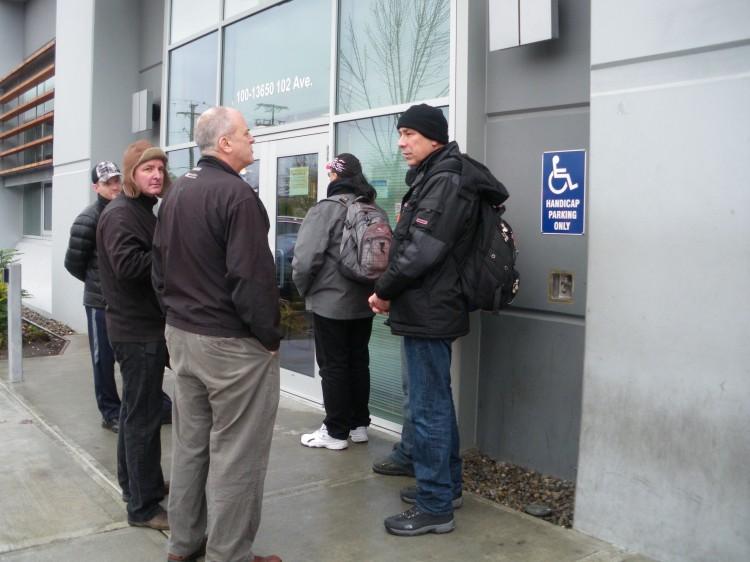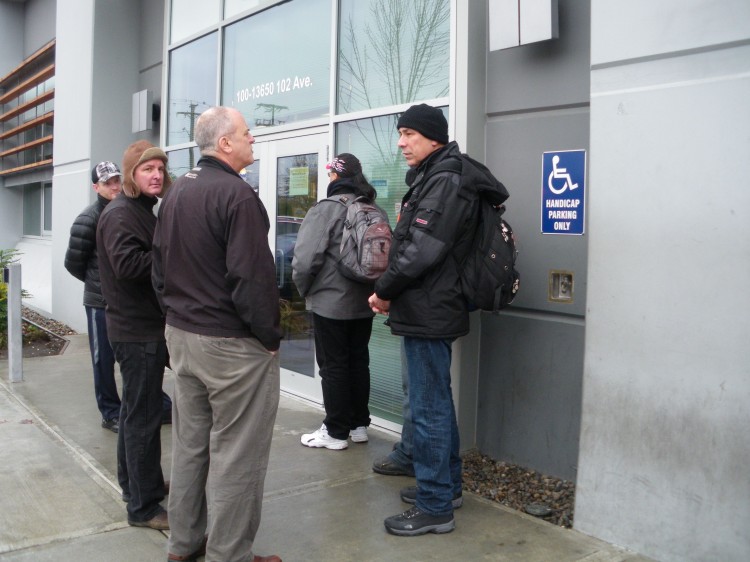A B.C. MLA is finding that surviving on welfare is just that—surviving, with every waking minute devoted to scrounging enough money for his next meal.
“Living in poverty or welfare is hard and demoralizing,” says New Democrat Jagrup Brar, who began a challenge on Jan. 1 to live on welfare for a month.
“It’s a tough life. You spend your whole day basically looking for food and shelter. It takes away your self esteem. It basically makes you a completely different person.”
The Surrey-Fleetwood MLA embarked on the experiment in response to a challenge issued to all 85 B.C. MLAs by Raise the Rates, a coalition of poverty advocacy groups.
Brar, 52, the only MLA to accept the challenge to live on welfare for a month, says he did so “to tell the story of a half a million people in B.C. living in poverty.
“As a father of two young children, it’s hard for me to imagine that we have 137,000 children living in poverty in a rich province. It is hard for me to believe that 70,000 people use a food bank every month and one-third of them are children,” he says.
Out of the $610 a single person receives on welfare in B.C., Brar spent $420 on rent, $42 on bus tickets, and $25 on a phone. Phone and transportation are necessary for welfare recipients who are required to look for work. After these expenses, he was left with $108 for food and any additional needs.
“I went out the day before yesterday to buy my groceries with a budget of $30 per week. I ended up spending $33 dollars, and I am right now left with $67 for the rest of the month,” he says.
“With a $30 weekly budget, when you go to buy groceries the first thing you look at is the price, not at the quality of the food. So that’s a huge challenge—not only that you can’t eat healthy food, but you can’t actually eat enough to survive.
“You feel hungry all the time. Hunger becomes your biggest challenge during the day.”
As organized by Raise the Rates, Brar is allowed to spend one night a week at his home—but must pay for any food he may eat there—and he will work one day a week in his office.
“During this month I will listen,” he says. “I will meet with the people living in poverty and on welfare, listen to their stories and share those stories with the people of B.C. to raise awareness about poverty, and hopefully initiate a debate based on the on-the-ground reality.”
Less Purchasing Power
In the 1980s, NDP MLA Emery Barnes lived on welfare for seven weeks, when the rates were just $375 a month. Barnes, a former pro football player, lost 30 pounds during his stint on income assistance.
Back then, Barnes said welfare rates needed to be raised to $700 a month. But rates today have even less purchasing power, notes community organizer Jean Swanson, who initiated the challenge Barnes accepted 25 years ago and the current one with Brar.







